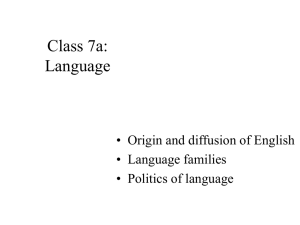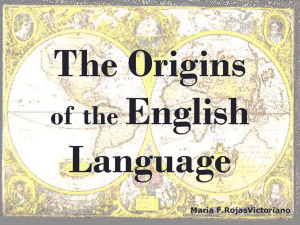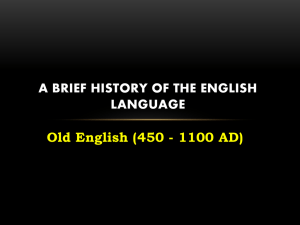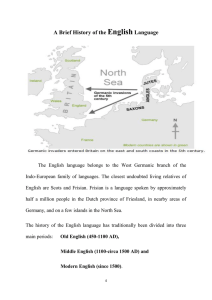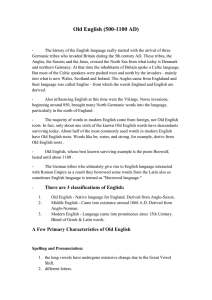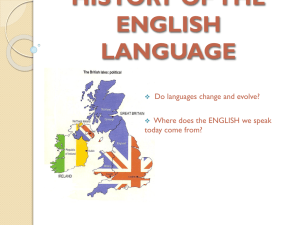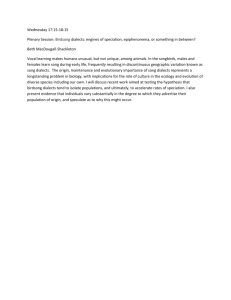The origins of the English language
advertisement
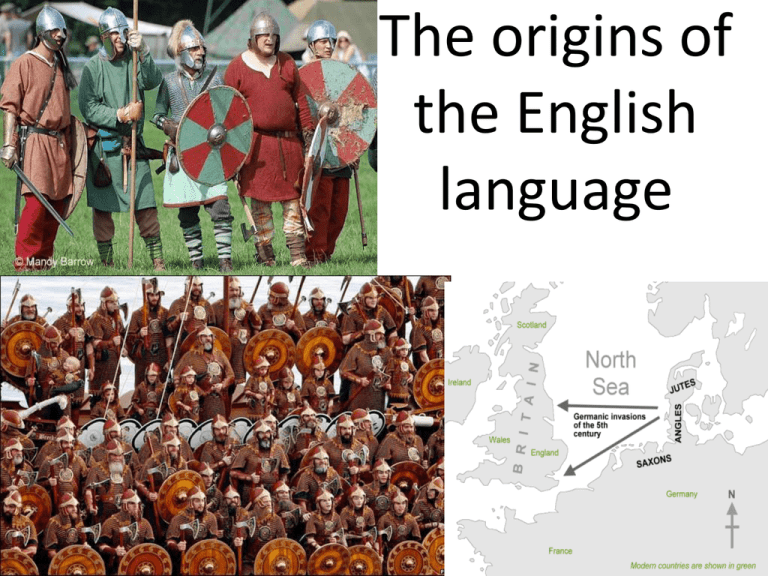
The origins of the English language The linguistic geography of Europe By the beginning of the Christian era, the southern part of Europe was a Celtic-speaking place whereas the north was a Germanic speaking place. Language in Britain Celts, from Central Europe, populated the British Isles. Nowadays, it presents the only place in Europe where Celtic heritage (Living language and living descendants can be found). 48 BC • Roman ocupation started • Latin hardly influences the dialects spoken in Great Britain 5th century • Germanic peoples (Anglo Saxons) arrived to Great Britain carrying Germanic dialects 8th century • Arise of great 4 kingdoms . Trade caused Mutual caused Influence Military Contacts Language Contact New words came into dialects. The Germanic peoples adopted wine, beer and cheese from Latin (the Roman Empire) Latin made little contributions to the language in the Dark Ages yet in the Middle and start of Modern English Periods it played an essential part being the language of scholarship. Early English dialects As there was no such thing as a “Standard English” then, the more prominent a kingdom got, the more prestigious its dialect was Northumbrian Mercian EARLY ENGLISH DIALECTS West Saxon Kentish Early English dialects West Saxon Northumbrian Kentish Mercian Standard language The dialects of the old kingdoms formed the standard language The beginnings of written English First records of written English tried to represent English sounds with Latin letters Christianity introduced. Anglo Saxon dialects influenced by Latin Germanic tribes used runes. • Origins of written English can be tracked down to the 8th century. Written English First English texts produced in represented Power of the Church Firstly, Northumbria No surviving records Second, Mercia Church gave Literacy infraestructure Simultaneous translation Earliest remaining records of written English Result of The survival of Celtic In the picture we can see the places where the Anglo Saxons settled in Eastern England. Due to their establishment, Celtic peoples had to emigrate to the ends (Ireland, Wales, Scotland), places where Celtic Roots still exist. The survival of Celtic As political borders moved, the language spread English Firstly Northumbria Mercia Nowadays Wessex Wales Threatened by English economic power The survival of Celtic Declared part of England in 1536 Despite its declination due to economic factors, Celtic keeps being spoken Wales Translation of the Bible and Prayer Book Welsh and English declared equals in 1536 and 1543
